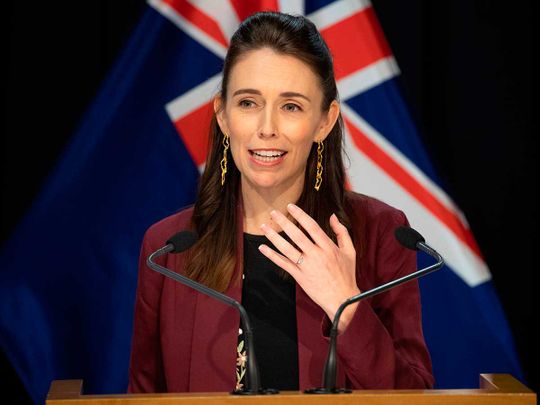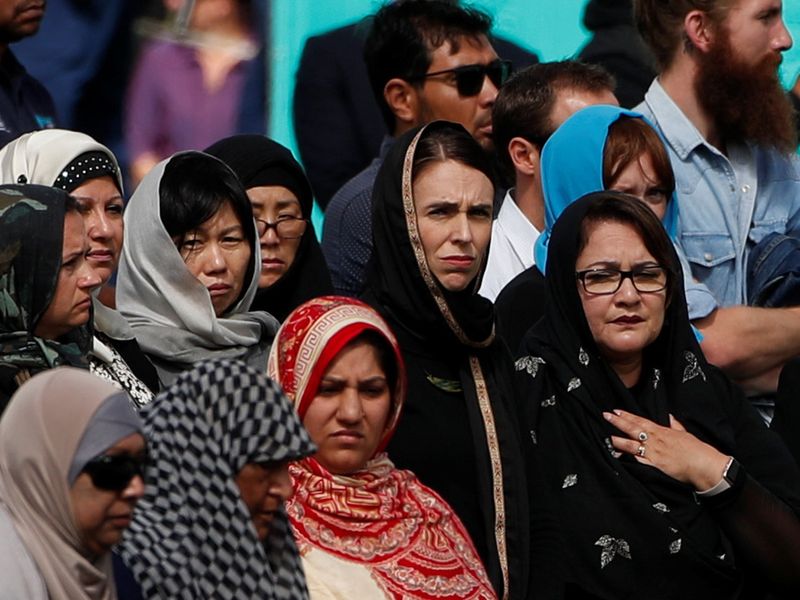
New Zealand’s Prime Minister Jacinda Ardern’s sudden announcement to step down from her job by February 7 has surprised the world. She has been leading her country for just five and a half years and will now be replaced by Chris Hipkins. New Zealand, with five million population, might be a developed country, but it is not politically or strategically significant as it is situated in a far corner of the planet. But Ardern’s worldwide popularity and political footprint have gone far beyond what the leader of a country like New Zealand’s size and stature usually commands.
Ardern might be taking a break from politics at 42, but she has been the prime minister of New Zealand since October 2017. She was the world’s youngest female head of government at the time of her appointment. She also gave birth to her daughter in 2018 while in office, only the second prime minister after Pakistan’s Benazir Bhutto. She is not only still one of the youngest leaders around the world but also very media savvy. She was the first global leader to bring her child to the floor of the UN General Assembly.
Ardern is known for her progressive policies and strong leadership. During the pandemic, she was praised for her swift and decisive actions, which helped contain the spread of Covid-19 in New Zealand. In 2020, she closed the country’s borders to foreigners and imposed a tough quarantine regime for returning citizens that kept New Zealand almost free from Covid-19 till the vaccine became available. Her proactive approach earned the ire of American President Donald Trump and anti-vaccine and anti-lockdown groups at home, but New Zealand saw the lowest Covid death rate in the developed world.
Commitment to social justice issues
The New Zealand prime minister is famous for her commitment to social justice issues. Ardern prioritised measures to address child poverty and inequality and has implemented several policies but with limited success. She has also been a vocal advocate for women’s rights and gender equality and has taken steps to increase the representation of women in leadership roles. After winning a landslide majority in 2020, Ardern appointed eight women ministers and five indigenous Maori ministers. She also passed the Equal Pay Amendment Bill in July 2020 to close the gender pay gap and declared the start of the Maori New Year as a public holiday.
Ardern is seen as a refreshingly honest and genuine leader. Her commitment to multilateralism, global cooperation, and international development has also earned her respect among other world leaders. To meet the country’s climate change goals, she was the first leader to declare a tax on agricultural emissions, including livestock burbs, dung, and urine. Ardern has gained a global reputation for her unique leadership style, characterised by empathy and authenticity. She has a huge emotional intelligence to connect with people and build trust with a variety of audiences.
Her popularity and stature grew immensely after the Christchurch terror attacks in March 2019, when a white supremacist stormed two mosques and gunned down 51 worshippers during Friday prayers. Ardern’s compassionate and decisive leadership in the aftermath of this tragedy was widely praised. She quickly condemned the brutal attacks and reached out to New Zealand’s small but growing Muslim community to offer support and condolences. Her compassion towards the victims, their families, and the country’s Muslim community was widely appreciated. Ardern wearing a hijab during her visits to mosques as a sign of solidarity with the Muslim community was seen as a powerful symbol of empathy and understanding.

Ardern did everything she could to unite the country and promote understanding in the wake of the terror attacks. She encouraged New Zealanders to support the Muslim community and to stand together against hate and extremism. She also implemented several measures to address the issues that led to the terror attacks, such as tightening gun laws by banning the sale of all types of semi-automatic weapons and assault rifles. She also launched a global campaign to end online hate and the spreading of extremist ideology.
Ardern’s response to the Christchurch tragedy was compassionate and tolerant instead of following the populist formula of creating more hate and violence for narrow political gains. A few months after the Christchurch tragedy, 22 tourists were killed in New Zealand in the eruption of the White Island volcano. Ardern’s reputation as a leader with exceptional empathy was cemented as the world praised her for her classy response, seeing how she hugged and cared for emergency service personnel engaged in the rescue operation.
A global icon for progressive-liberal values
She has become a global icon for doing politics with progressive-liberal values. She has shown the power of compassionate leadership when the world struggles with the rise of right-wing populism and extremist political ideologies. Despite being subjected to relentless personal attacks, she has refused to engage in the rhetoric of abuse and hysterical narratives at a time when the political discourse worldwide has become extremely uncivil and vicious. Ardern’s sudden and surprising decision to step down to spend time with her family is also significant, particularly when several so-called ‘strongman’ leaders are reluctant to resign even after losing elections.
Ardern’s massive popularity and leadership style may encourage many, particularly women, to join politics. While right-wing populism poses a grave threat to liberal democracy and there is increasing cynicism concerning politics, the world needs more political leaders like Ardern for democracies to regain momentum and liberal international order to revive their stature.











